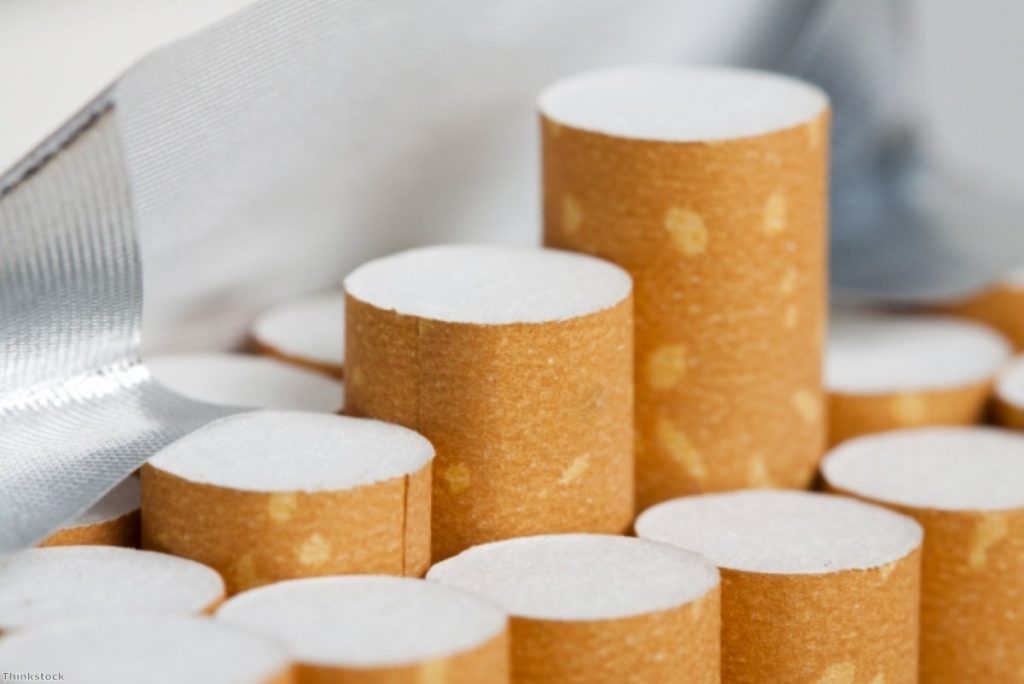New plain packs ‘evidence’ is worthy of a laugh and little else
Conclusive new evidence has emerged of the public health impact of plain cigarette packs, two years after they were introduced in Australia. Are you ready for it? Here it comes. More people are "taking notice" of the warning label.
That's right. If you massively increase the size of an image and surround it with a single drab colour, people will pay more attention to it. Remarkable stuff. Today's report by the British Heart Foundation and other public health groups explained the process in detail:
"After standardised packs were implemented in Australia, reports of noticing the warnings before other aspects of the pack increased from 34% to 66%. In the UK where branded packaging still exists, other aspects of the pack, such as branding, are more likely to be noticed first – only 24% in the UK report noticing the warnings first."
The rest of the report is hardly less banal. At one point it celebrates the fact that public support for the policy in Australia has risen from 28% to 51% since plain packs were introduced. "If the UK followed the same pattern as Australia, we could expect to see similar increases of support," it suggests. It is a remarkable admission of priorities. They have got the entire enterprise the wrong way round. Instead of trying to convince the public of their policy, they want ministers to implement it so that the public might come round to it afterwards.


Anti-smoking campaigners are forced to rely on this sort of mucky nonsense because of the dearth of data suggesting smoking rates have fallen due to the policy. There is a decline in people smoking, absolutely, but that is part of a long-term trend which has been taking place for years. It's impossible to disentangle the effect of plain packs from other measures imposed by the Australian government, such as a massive hike in excise duty.
A 2013 report by London Economics, commissioned by big tobacco, found the percentage of people saying they'd never smoked went up over the period of the ban from 45.6% to 46.6% while those who said they smoked every day fell by 0.4%. But all these changes are statistically insignificant. As the authors said:
"From a statistical perspective, none of these changes were different from zero. Over the timeframe of the analysis, the data does not demonstrate that there has been a change in smoking prevalence following the introduction of plain packaging."
One thing is certainly true: if plain packs had a marked effect on public health we'd have heard about it. The anti-smoking lobby would have been singing it from the rooftops to push the UK government into adopting the same policy. Instead, the two-year anniversary of the policy passed last month with barely a murmur.
Most of our understanding of graphic images – the pictures of decaying teeth and corpses in the morgue which are now slapped on fag packets – are that they affect you at first but you quickly learn to ignore them. And using these images as a prominent reason for plain packs is unhelpful. The EU's Tobacco Products Directive, to be introduced next year, already makes the health warnings significantly larger.
Admittedly, some of the data we have about the effect of plains packs is of passing interest. There's evidence of a mental phenomenon whereby it makes smokers think their brand is of worse quality and tastes less satisfying. People also seem to be giving up on more expensive brands and buying the cheaper ones.
It's curious to see how humans behave when you get rid of packaging. Suddenly the things we think we experience because of branding and advertising aren't so clear anymore. Perhaps our lives would be more sane and happy if we got rid of glossy packaging altogether. Women's magazines could come in a drab brown cover with the words: 'This will make you feel terrible about yourself'. Smart phones could come in boring packages saying: 'This will lead to you ignoring your friends and family.'
A world where every product was robbed of its misleading packaging and forced to tell the truth about itself actually sounds like a very compelling proposition. But why should one perfectly legal industry be singled out for this treatment while oil, alcohol, knives and all the other potentially dangerous products are sold like normal?
As with every anti-smoking policy, the real intention is not harm reduction, but denormalisation. They are trying to create a sufficient degree of social embarrassment that the argument about full criminalisation can finally begin. If the British government chooses to go down the road for that reason, let them do so. But let's not pretend it has any connection to evidence.

